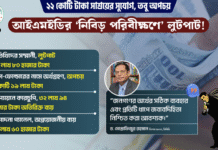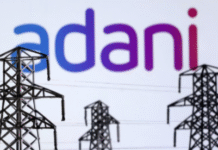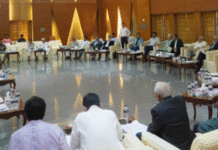 Time to declare ‘Pollution Emergency’ in Dhaka
Time to declare ‘Pollution Emergency’ in Dhaka
 Act immediately to contain air pollution. Prothom Alo File Photo
Act immediately to contain air pollution. Prothom Alo File Photo
In the middle of 2019, Britain’s media giant The Guardian took a decision of the century. The editorial board of the media outlet decided that it would no longer use the terminology ‘climate change’. It coined the term ‘climate emergency’ instead. They chose it because climate change is no more theoretical. It has already reached our homes, inundating our cities, burning our forests and melting down our ice balance.And then there is pollution. The level of atmospheric contamination has already turned terrible across the world. Ambient pollution has reached the doomstate in the capital city of Bangladesh.
Pollution or development? The matrix, the debate of the century, is unresolved. This is probably the hottest confab of 21th century as well. Neither developmentalists nor environmentalists have won the argument yet. But, pollution does. It has already taken much of the euphoric empire we have built to make our so-called future brighter and fortune shinier inside a walled ‘civilisation’. We are now living in a world where the atmosphere is extremely poisoned, the neihgbourhoods are cordoned off, the beaches are concreted, the forests are fenced and the sky is roofed. One may say it is a carrot and stick theorem. Then we should remember the trick only works as long as the the donkey still has energy.
Surely, it is a very old debate that the pollution in the name of development has cost us terribly. It has taken our trees, killed our rivers, polluted our air and water, and destroyed our sound ambiance. Nothing is new to us, but, the diversified and intensifying disaster is novel. As time goes on, each and every big city, which we proudly presume as an excellence of our material progress, is dying. Subsequently, the denizens of the modern city are suffocating in toxic air, dehydrating with the lack of clean water, choking on plastic, becoming deafened by the jarring noise.
Air pollution has cost us very dearly. A recent report jointly conducted by the Centre for Research on Energy and Clean Air (CREA) and Greenpeace Southeast Asia has concluded that the air pollution costs world $2.9 trillion a year, meaning $8 billion a day, which is roughly 3.3 per cent of the global economic output.
When it is about Bangladesh, especially about Dhaka, it is an existential crisis. Dhaka has already been a gas-chamber environmentally speaking. The terms like Dhaka is the ‘most polluted city’, Dhaka’s air is ‘uninhalable’, Dhaka’s atmospheric condition is the ‘dirtiest’ — are no more news here. When I am writing this piece inside a four-walled room at my office desk, Dhaka’s AQI value is measured as 356 which is much higher than the hazardous level.
From humans to trees – each and every living being is affected by the distressing air pollution. Along with monetary loss, the damage is collateral. The poor air has already shortened our life expectancy, snatched away our invaluable time and eaten up our economy.
The air the inhabitants of this city inhale every day is nothing less than that of toxic gasses in a laboratory as the quality of Dhaka air remains much worse than that of inhalable level. Many studies suggest that the concentration of pollutants of particulate matter (PM) of both 2.5 and 10 micrometres are many times higher than that of healthy amount. As per the Air Quality Index (AQI), Dhaka’s air remained either ‘very unhealthy’ or ‘extremely unhealthy’ or even ‘hazardous’ nearly every day since winter arrived.
A Greenpeace report published in February 2020 says the toxic air had claimed lives of 96,000 children in 2018. A World Bank study stated ambient pollution cuts Bangladeshis’ life expectancy by 1.87 years. According to ‘The State of Global Air 2019’, 123,000 persons died due to diseases related to air pollution in Bangladesh in 2017. Bangladesh was ranked fifth in deaths caused by air pollution. The premature deaths in Bangladesh are gradually climbing as anticipated 81,200 people died in 1990 that rose to 122,400 in 2015.
Not only humans, the trees of Dhaka city are also at enormous risk. In an article published in the Springer Nature Applied Sciences journal last year scientists said the air pollution is threatening Dhaka’s trees particularly debdaru, mahogany and jackfruit trees and the natural friends are at extinction. The extremely polluted air poisoned by nitrogen dioxide emissions particulate matter (PM) has significantly reduced the capacity of survival of the roadside trees, dropping by 30 per cent. If this pace continues, the Dhaka will turn into a desert soon.
The economic loss of the air pollution has scarred much deeper. The Greenpeace’s February report also detailed the air pollution will cost Bangladesh Tk 1.176 trillion a year which is ‘greater than 5 per cent of GDP.’
In other words, the loss is more than double of the total proposed education budget of Bangladesh and nearly six times higher than that of primary education budget in fiscal 2019-20. The cost is more than four times larger than that of total proposed medical budget of the country in the current fiscal year.
The most recent study commissioned by Center for Atmospheric Pollution Studies (CAPS) at 70 places of Bangladesh’s capital between November and December in 2019 shows quality of air is five times worse that than of inhalable level.
Either humans or animals or trees — the death toll is one the rise amid growing pollution sources in Dhaka. The number of the brick kilns, which are responsible for on an average 60 per of the air pollution in Dhaka, is thriving constantly. Isn’t it enough? The slow-poison is killing us every moment by moment. It is now time to declare ‘pollution emergency’ in Dhaka if we really want to save the city and the living beings of this place.
*Toriqul Islam is a journalist working at Prothom Alo. He can be reached at toriqul38@gmail.com.









